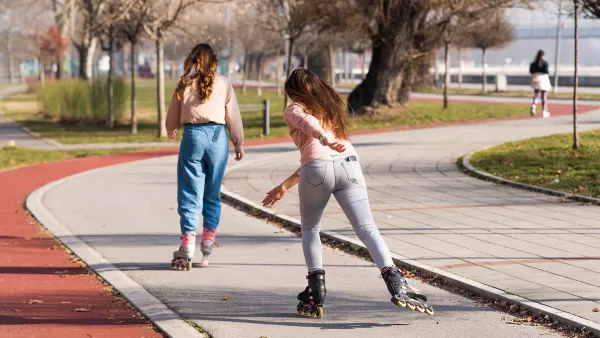Across the country, the billboard industry is fighting to prohibit tree planting on public spaces that might block their billboards.
"There is a strip of US 192 in Osceola, Florida, that people used to consider 'Tacky Town,' a drab stretch of road that was filled with junky tourist amusements and strip malls – a place with ditches lining the side of the road and no sidewalks. In the 1980s, as National Public Radio reported in a wonderful segment yesterday, the community decided to tax itself – to the tune of $29 million – to make the roadway safer and more attractive. It put in ten-foot sidewalks, bus shelters, and hundreds of trees and shrubs.
But the community's effort to reclaim its space and make it beautiful didn't count on one thing – the billboard industry. Clear Channel Outdoor, a major national purveyor of billboard space, complained that the trees planted on the public right-of-way were blocking the view of its billboards. Craig Swygert, the head of the Orlando division of the company, argued that the government was unfairly diminishing the value of Clear Channel's investments in billboards, and so the tree needed to come down. 'The billboards were there first ,' he told NPR."
FULL STORY: Who Owns the Public View?

Planetizen Federal Action Tracker
A weekly monitor of how Trump’s orders and actions are impacting planners and planning in America.

Maui's Vacation Rental Debate Turns Ugly
Verbal attacks, misinformation campaigns and fistfights plague a high-stakes debate to convert thousands of vacation rentals into long-term housing.

San Francisco Suspends Traffic Calming Amidst Record Deaths
Citing “a challenging fiscal landscape,” the city will cease the program on the heels of 42 traffic deaths, including 24 pedestrians.

Amtrak Rolls Out New Orleans to Alabama “Mardi Gras” Train
The new service will operate morning and evening departures between Mobile and New Orleans.

The Subversive Car-Free Guide to Trump's Great American Road Trip
Car-free ways to access Chicagoland’s best tourist attractions.

San Antonio and Austin are Fusing Into one Massive Megaregion
The region spanning the two central Texas cities is growing fast, posing challenges for local infrastructure and water supplies.
Urban Design for Planners 1: Software Tools
This six-course series explores essential urban design concepts using open source software and equips planners with the tools they need to participate fully in the urban design process.
Planning for Universal Design
Learn the tools for implementing Universal Design in planning regulations.
Heyer Gruel & Associates PA
JM Goldson LLC
Custer County Colorado
City of Camden Redevelopment Agency
City of Astoria
Transportation Research & Education Center (TREC) at Portland State University
Jefferson Parish Government
Camden Redevelopment Agency
City of Claremont



























